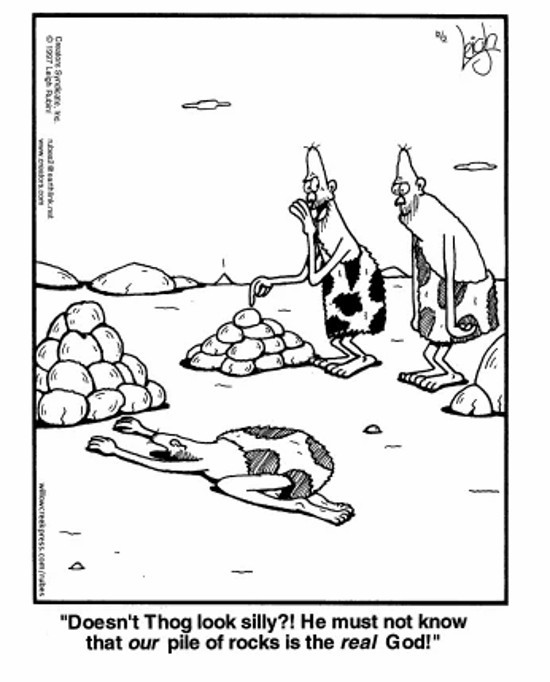Tonight begins the first seder (a dinner of special significance) celebrated at Passover. We have family and a good friend joining us. It is interesting to me that my wife and I continue to honour the tradition even though I have long since stopped associating it with my religious upbringing. For me, what Passover and the seder are is cultural continuity.
This period in 2023 coincides with the Muslim month of Ramadan, an equally important rite of passage that involves daytime fasting. And Passover and the Christian celebration of Easter tend to be coincident because the dates are derived by following a modified lunar calendar.
Even NASA’s Artemis 2 announcement naming the crew for next year’s circumlunar voyage this week referenced God in the role of helping humanity’s quest to reach the stars.
All of this religious tradition, invocation, and fervour involves human efforts to idolize a non-human super-presence that has the power to oversee life on Earth, and in the future extend a presence to encompass the Moon and Mars.
For all who celebrate these religiously symbolic events, I am not trying to denigrate belief but rather am seeking an explanation for why so many of our species are focused this way.
Humanity And Gods
It would seem that religion and humanity are inextricably linked. So this raises the question:
“Are we predisposed to religion because it is hardwired in our genes?”
Hardwiring implies that there was an evolutionary advantage to belief, that our sense of a non-human super-presence gave us survivor advantages over ancestors who did not believe. And since the believers appear to have proliferated, having won life’s lottery, they passed a predisposition to“religiosity” or “belief” to their offspring.
Some of us have searched for a “God gene” to explain this fixation on an otherworldly supreme arbiter. In 2004, a book bearing that title asked if faith was genetically hardwired. The author, Dean Hamer, from the American National Cancer Institute, saw spirituality as genetic and evolved for a purpose. He searched for the gene and claimed he found it in the Vesicular Monoamine Transporter 2 (VMAT2) which can be found on chromosome 10.
A quick refresher on human DNA. We have 22 numbered and paired chromosomes. We also have two sex chromosomes. We inherit all of these from our parents.
Determining VMAT2’s purpose led to Hamer’s hypothesis. Genes are recipe creators who write down the instructions which are then handed off to RNA in our cells. The RNA cooks the dish which in VMAT2’s case produces a protein of the same name that acts as a neurotransmitter within the amygdala of our brains affecting levels of serotonin, dopamine, adrenaline, and noradrenaline. These are the chemicals humans use to determine fear or flight. They govern our moods. They can even give us visions. When these chemicals are imbalanced some of us develop schizophrenia.
If VMAT2 causes us to have visions, then it would make Hamer’s God gene hypothesis seem real. But subsequent researchers studying his God gene hypothesis have pretty much discounted his conclusions which stated that spirituality in humans came from VMAT2.
Religion and Genetic Determinism
Another argument for religion being hardwired states that genetic determinism has led to this condition. A 2009 article appearing in The New York Times, describes archeological finds that indicate complex religious rituals in Mesoamerica as early as 7,000 BC. It suggests that religion represented an evolved behaviour which predisposed believers to be more successful than non-believers. Believers formed social groups, protected each other, and bonded over common rites of passage and ceremony. Hence they survived while non-believers went the way of the Dodo.
Robert Rowthorn, an economist at the University of Cambridge made a similar argument in a paper he published in 2011 entitled, “Religion, Fertility and Genes: A Dual Inheritance Model.” Rowthorn argued that people of faith were more fecund than those who were non-believers. He didn’t say why. But he concluded that they produced more surviving offspring and thus crowded out the nonbelievers over multiple generations. Preferential mating from cultural affinity further selected believers making their DNA predominant. Rowthorn never discovered a “God gene” or anything else in our DNA to support his hypothesis.
Do Believers Outnumber Unbelievers?
Atheism is on the rise these days. According to Wikipedia, current numbers are somewhere between 500 and 750 million. These are people who classify themselves as atheists, agnostics, or of no faith. It’s a big number and certainly belays the survival argument stated above.
Although in the minority at present, atheists are purported to be the fastest-growing social group on the planet. That’s according to the National Catholic Register. So cultural determinism or the God gene has not wiped them out.
I am an atheist. I’m culturally a Jew but I don’t associate any god with how I celebrate life with my family and friends. In university, when I was already an atheist, I studied medieval history, Christianity, and Islam. I did this because I wanted to walk a mile in others’ shoes to try and understand what made people believe in gods.
So what is it that makes so many of us need this? It is the fear of the unknown, of the dark, of what goes bump in the night. For our species to have survived, our bodies and brains reacted subconsciously to the unknown. When we feared, we fled or we congregated into groups for mutual protection. Humans who were strangers were to be feared. Death was to be feared. To this day when we are overwhelmed by uncertainties we become anxious and depressed. We have evolved very little emotionally beyond those first evolutionary steps on the way to becoming the human species we see today. And that, more than any other factor, is why we seek answers through religion to cover for what goes bump in the dark of night.









